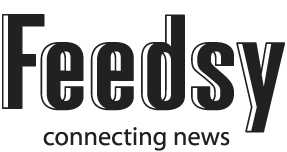Australia has one of the highest rates of illicit methamphetamine use in the world and the highest use among English-speaking countries.
Since 2015, a drug lab bust has taken place almost every day in Australia, with estimates claiming as few as one in 10 labs are discovered by authorities.
The majority of laboratories detected produce methamphetamine (including ‘ice’ and ‘speed’), the Illicit Drug Data report from the Australian Criminal Intelligence Commission claims.
Worse yet for landlords: meth contamination from manufacturing by a clandestine drug lab on a property can decrease its value by about 10 percent, according to Meth Screen.
The chemicals produced in the manufacture of the drug are absorbed into carpeting and furniture and deposit residue on walls, ceilings and floors. As a result, air quality within the contaminated premises is also affected.
In the worst cases, a property can be left uninhabitable. Long term exposure to such an environment can lead to chronic health problems.
“In the worst cases, a property can be left uninhabitable. Long term exposure to such an environment can lead to chronic health problems”
Breaking bad landlord habits
Rest assured there are some simple mitigation steps you can take as a landlord to prevent your property from becoming a rented out drug lab.
First and foremost: complete a comprehensive reference check. Never hand over your keys to a tenant without first speaking to a number of their former property managers and listed references.
Also make sure the contact number you’re provided with is properly listed online somewhere. It’s not uncommon for tenants to list a fake reference if they have a poor rental history.
You can include a clause in your Tenancy Agreement that advises your tenant you will regularly conduct meth testing and they’ll be liable for any clean up costs. At the very least, this will act as a deterrent.
If you include this clause, it’s vital that you conduct a meth test before they move in to ensure the property is clean. You should also be testing at the end of the lease period.
There are also devices, similar to smoke alarms, landlords can install that can detect the presence of chemicals used in the manufacture of illegal drugs.
It’s also important to conduct regular checks. How frequently you are allowed to check the property, and how much notice you must give, depends on whether it is residential property and what state or territory you’re in.
Suffice to say that you’ll want to complete an initial check as soon as you can, and again regularly thereafter.
Short-term rentals are not safe from the dangers of illegal drug manufacture either. Hotel rooms and property rented via online sites such as Airbnb have also been used to ‘cook’ illegal drugs in.
Insurance measures
All this is why you’ll also want to protect your asset and rental income stream with appropriate Landlord Insurance cover with the help of a trusted adviser or broker.
As a landlord, you need to check if your Landlord Insurance provides specific coverage for the discovery of a meth lab or other illegal drug manufacturing operation on your premises.
Some Landlord Insurance policies include coverage for chemical contamination as a result of the manufacture, storage or distribution of any controlled drug.
As always, it is best to check with your Steadfast broker, as to what your policy covers.
They can arrange cover for you that will protect you from damage caused by chemical or drug contamination.
They’ll also help ensure you’re covered against a loss of rental income, in case you need to evict a tenant and then spend time decontaminating the property, and if the manufacture of illegal drugs has caused material damage to your property.
For more information on insurance solutions, talk to your Steadfast broker or find one here.
Important notice – Steadfast Group Limited ABN 98 073 659 677
This general information does not take into account your specific objectives, financial situation or needs. It is also not financial advice, nor complete, so please discuss the full details with your insurance broker or adviser as to whether these types of insurance are appropriate for you. Deductibles, exclusions and limits apply. These insurances are issued by various insurers and can differ.






